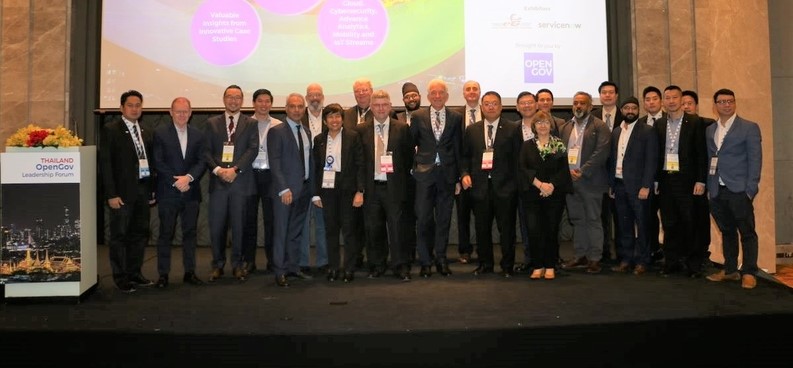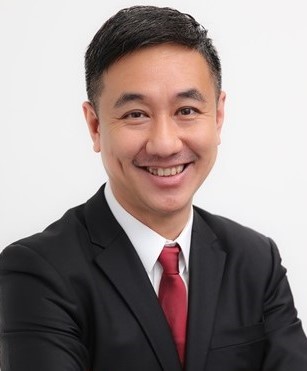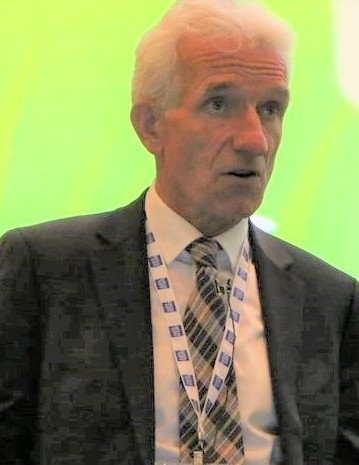
The Thailand OpenGov Leadership Forum 2019 that took place on October 17 at the Amari Watergate, Bangkok, was dedicated to its purpose of exploring and developing the digital capabilities of the Thai government across the various sectors.
The event saw delegates from various sectors come together and participate in four rounds of gamification and gain insights from the series of presentations and panel discussions.
Intelligent Business Transformation

Thaneth Angkasirisan, General Manager – Indochina Cluster, Lenovo presented on how workplaces can undergo intelligent transformation at the modern workplace.
He provided figures that by 2025, 75% of the workforce will be represented by millennials and Gen-Z. as such digital transformation will become more important with the need to drive productivity with technologies.
Thaneth listed the workforce, modern IT and emerging tech as the focus areas for driving transformations.
Lenovo aims to create smart technology for all businesses. Cybersecurity is one such area of importance for businesses. He shared on their security solution which allows for the safe transition from the cloud to the edge.
Smart workplaces include the retaining of talent, unleashing of creativity and other perks. Students are also benefited from technologies. VR classrooms are slowly rising where students engage in simulations to enjoy more immersive learning.
The manufacturing industry also undergoes digital transformations. Cameras allow for real-time tracking and for managing alerts. 24/7 surveillance. He also shared images and explained the various tech bots that have been invented to further drive the intelligent transformation goals.
Panel session 2- The Dawn of Edge Computing
 This panel discussion focused on edge computing and its impact on organisations in the long run.
This panel discussion focused on edge computing and its impact on organisations in the long run.
This session was also moderated by Klaus Felsche. The distinguished panellists include:
- AVM Dr Suthee Chantrapunth, Deputy Director (Defence Technology Institute)
- Dr Montri Wiboonrat, Associate Professor, Department of Computer Engineering and Faculty of Engineering (King Mongkut’s Institute of Technology Ladkrabang)
- Leong Mun Kew, Director- Graduate Programmes, Institute of Systems Science (National University of Singapore)
- Abhay Ghosalkar, Head of DC International Application Centre- IndoChina (Schneider Electric)
Mun Kew set the picture of what edge computing is about- scenarios and data. He said that there is sense-making and decision-making involved. As seen from its name itself, it is about pushing sense-making and decision-making further down to the edge. He added that it is ultimately about where data resides at.
Abhay listed the few key questions one should ask themselves when looking at edge computing: what do you need to make edge computing work? Do they compute power closer to the user or closer to the processes? Is the edge computer secure or reliable? How is it being managed, locally or remotely?
Looking at autonomous cars, Montri said that the next generation of these cars, which might potentially use 5G technology, will run a lot faster at 1GB per second. Taking Bangkok into perspective, he said that there will be a mass use of sensors if there were to be a mass use of autonomous cars. He added that edge computing plays a part here.
Challenges for infrastructure to make edge computing work
Abhay said that infrastructure is needed to support harsher environments. People are needed on-site while the appropriate infrastructure is needed to manage it efficiently.
Is edge computing safe?
Suthee said that it is not necessarily safe. With hacking still being an issue, there is still a need for the right security measures to be put in place to protect data.
Mun Kew agreed and said that security is dependent on two types of security: securing edge devices and securing the entire system.
The Future of Digital Identities

Frans Rijkers, Strategic Adviser, National Office for Identity Information under the Ministry for the Interior and Kingdom Relations shared about the future of digital identity in the Netherlands.
NL DIGIbetter is the initiative by the government of the Netherlands to use technology for safeguarding public values of the society.
Frans explained that this initiative looks at how the government can connect with citizens and businesses in more personal and easily-accessible ways.
It acts as a platform for accessing digital services and for supporting innovations and experiments.
Quoting State Secretary Raymond Knops he said, “It is important that the citizen is the focus and for open source to be used as much as it can be”.
He shared on how three ICT projects were shut down after proving to be failures and with the government having to spend 100 million for it.
This was followed by looking back at the lessons learned, such as a program being too big and deliverables not clear.
Frans said that the new strategy based on lessons learned- is dependent on the Innovation Cycle. Having four layers to it, it follows this sequence:
- Actively follow developments
- Experiment
- Agile development
- Life Cycle management
He also touched on the Virtual ID, a Dutch mobile program which houses all information and identify credentials.
For the successful creation of a Virtual ID, aspects such as standards compliance and open source should be in place.
















